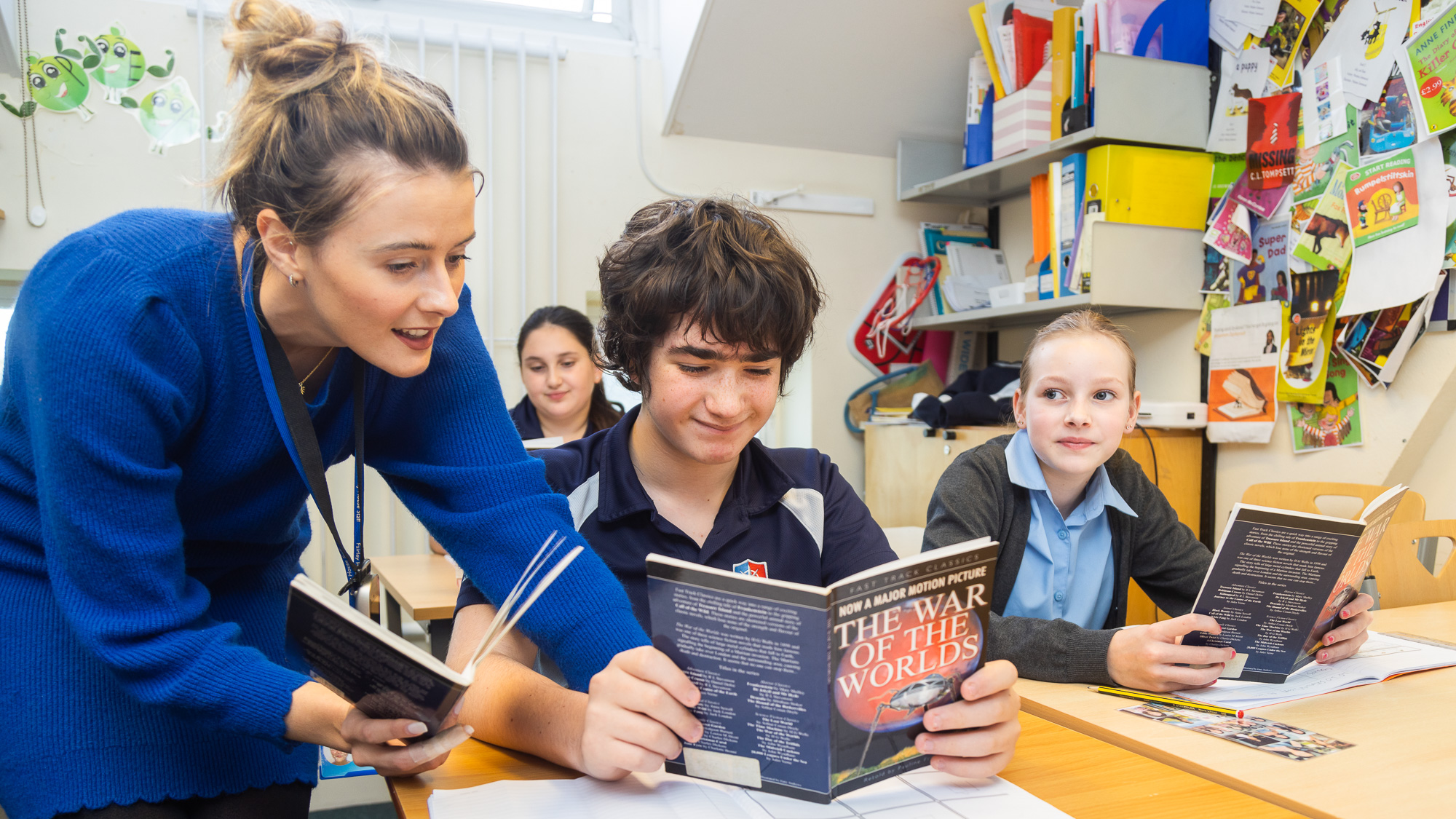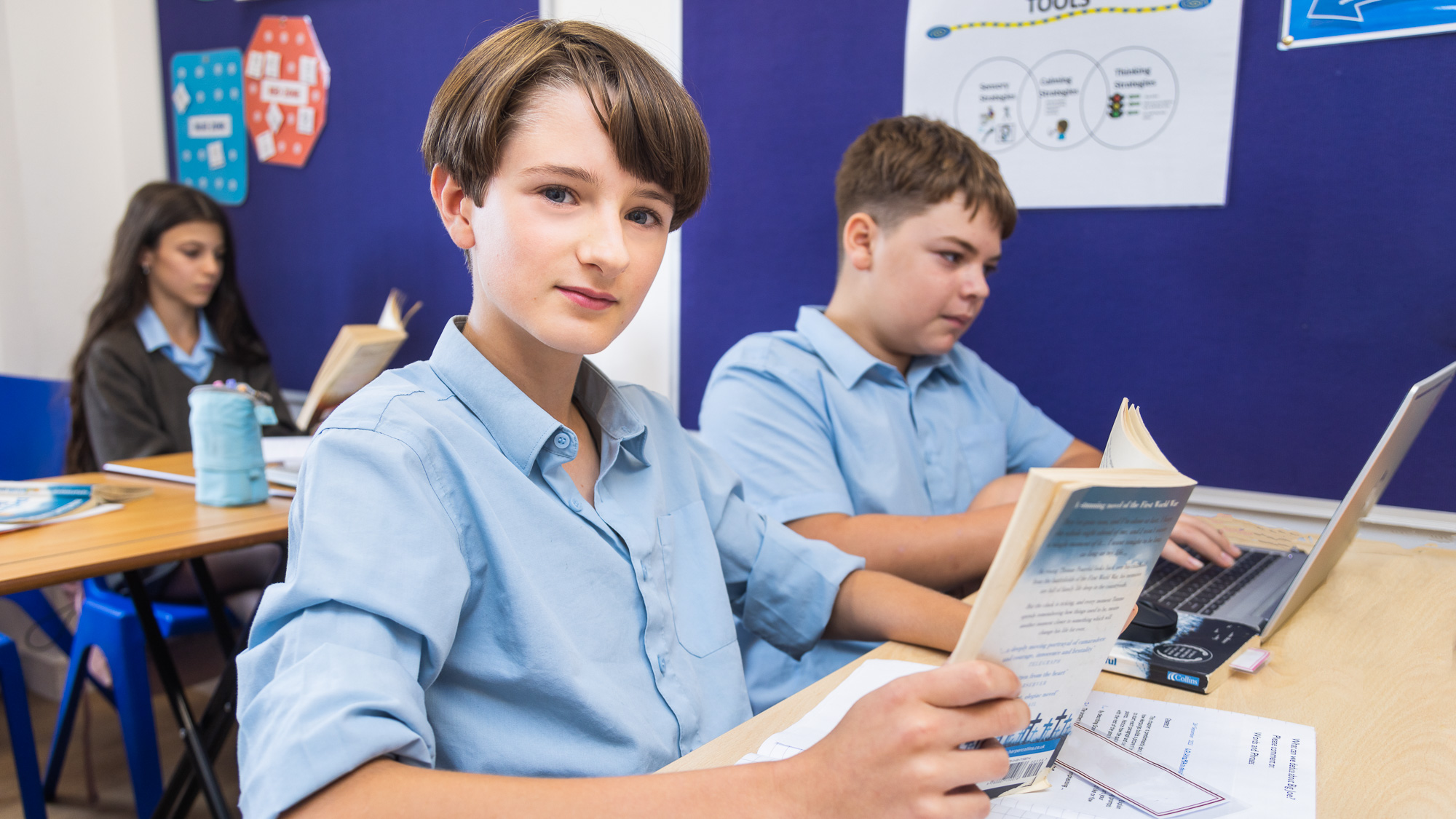English
The aim of the English department at Fairley House is to provide an individualised approach to help each child reach their full potential in all aspects of the subject.
We seek to nurture their confidence in reading and writing, develop their skills and knowledge, and reveal the true extent of what they can achieve.

Our literacy teachers have been trained in the Level 5 diploma for SpLD. This course provides rigorous training in a teaching program that is explicit, multisensory, structured, sequential and cumulative. Our multisensory approach enables students to learn in a ‘hands on manner’. They have fun in the classroom, working together to make meaning.
Whilst striving to make English enjoyable, we also value academic rigour. Students are exposed to a wide range of fiction and non-fiction texts, from literary classics, such as ‘A Christmas Carol’ and ‘An Inspector Calls’, to texts that engage with contemporary social issues. Students learn how to interpret texts critically and how to evaluate different forms of communication effectively: vital skills in this information age.
We view all our learners as writers, teaching them how to find a voice and to use language to express their views and experiences in a wide range of formats.
English lessons within the Junior department are inclusive, fun and definitely creative. Writing lessons in Years 2 to 6 use The Write Stuff as a way to inspire the students’ writing and broaden their vocabulary choices. In Reading, we focus on using ‘VIPERS’ to continue to develop our text knowledge and comprehension skills. Word Study lessons focus on a new spelling rule or sound each week, and a range of multisensory methods are used to embed learning. In Years 7 and 8, English lessons are split into reading, word study and writing, although lesson content overlaps between these disciplines. From Year 9-11 these skills are integrated into English lessons. In these upper years, students also develop their analytical skills, embarking on the GCSE or Functional Skills curriculum from Year 10.
English naturally takes up a considerable share of the timetable and is approached with much inventiveness and confidence boosting.
THE GOOD SCHOOLS GUIDE
Word Study
These memorable multisensory sessions go beyond teaching students to read and spell words simply through phonics and rules. We reflect on word meanings (semantics), word structure (morphology) and word origins (etymology). Students are encouraged to make connections between words and to use their existing knowledge, in combination with higher level thinking skills, to deduce the meanings of unfamiliar words when reading and to make informed choices when spelling.
Writing
Writing can be challenging for dyslexic and dyspraxic children; generating and sequencing ideas, writing legibly at length, using interesting language, applying correct punctuation and recalling the correct spelling of words. Writing lessons at Fairley House are taught through a transdisciplinary approach, by specialist teachers working with Speech and Language Therapists or Occupational Therapists.
Writing lessons ensure that the children understand grammatical structures and can use punctuation appropriately. We establish writing frameworks at word, sentence and whole text level to engage the audience(s) of the piece. Across year groups we cover many forms of writing, from narratives and poetry to persuasive speeches and blogs.
Planning and organisation are hugely important, and students are provided with strategies, visuals and tools to organise their ideas before they write.
Reading
At the early stages of their learning, students are taught to read using a phonic-based approach, in conjunction with learning, to recognise sight words and developing reading strategies such as using context. In later years, students read a range of accessible, yet challenging, texts to explore language and structure. Through their study of both fiction and non-fiction, their vocabulary flourishes and they understand how writers effectively communicate their ideas through choice of language and narrative.
Our students locate, explain, analyse and evaluate written text whilst embedding quotations as evidence. Additionally, the students build up a bank of literary terminology to identify the writers’ methods. We find their own writing is then enhanced by the techniques they have learnt from studying various authors and genres.

Get in Touch
30 Causton Street
London
SW1P 4AU
Call: 020 7976 5456
School Links
PUPIL AND PARENT PORTAL
GOVERNORS
TYPING CLUB
FUNDRAISING FOR FHS
ePraise


